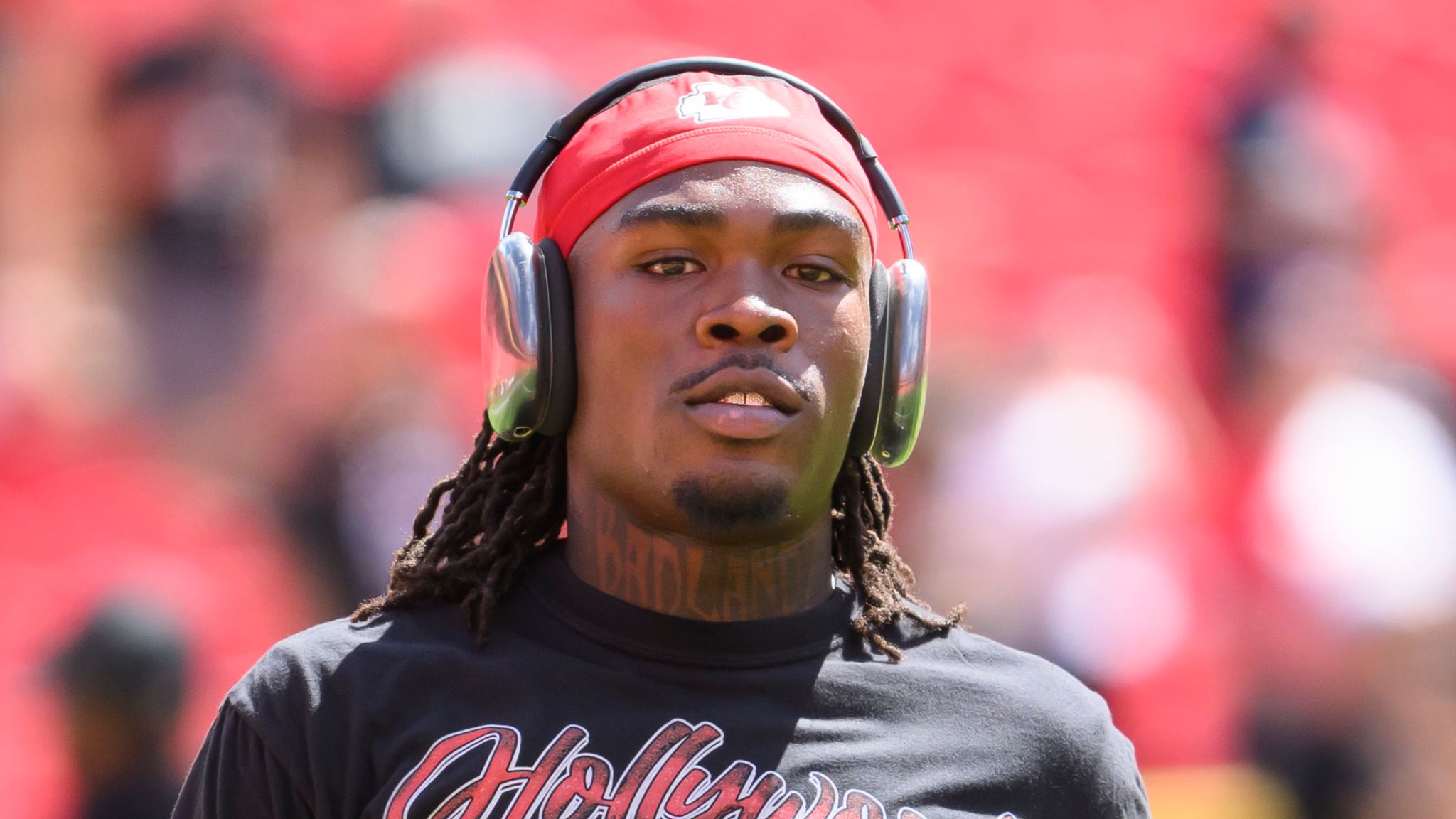Kansas City Chiefs WR Rashee Rice Receives 30-Day Jail Sentence for Role in High-Speed Crash.
Kansas City Chiefs wide receiver Rashee Rice, a player who had been seen as one of the NFL’s rising young talents, now faces the consequences of a serious off-field incident that has drawn widespread attention across the sports world. The 24-year-old pass catcher was sentenced to 30 days in jail after being involved in a high-speed crash that sparked legal battles, public scrutiny, and questions about accountability for athletes in the spotlight. This sentence comes after months of legal proceedings and discussions about whether Rice’s actions were the result of recklessness, immaturity, or a deeper issue tied to the pressures of fame and fortune in professional sports.
The crash, which took place earlier this year, involved multiple vehicles and reportedly caused injuries to several individuals. According to authorities, Rice was driving at an excessive speed in a high-end sports car at the time of the incident, alongside another driver in what witnesses described as an apparent street race. The situation quickly escalated when the cars lost control, colliding with other vehicles and triggering a chain reaction that left significant property damage and injuries behind. While no fatalities were reported, the seriousness of the crash drew immediate concern and outrage, especially considering Rice’s status as a professional athlete representing one of the NFL’s premier franchises.
Initial reports indicated that Rice left the scene before law enforcement arrived, which raised further questions about potential charges for leaving the scene of an accident. Legal experts debated whether this could constitute a felony, and fans worried that the young wide receiver might face prison time or even the end of his professional career. Eventually, Rice surrendered to authorities and cooperated with the investigation, which prosecutors noted as a mitigating factor in their decision-making process. Still, the incident could not be ignored, as it posed not only a legal problem for Rice but also a public relations issue for the Kansas City Chiefs and the NFL as a whole.
During the court hearings, prosecutors presented evidence that Rice had been traveling well above the speed limit, engaging in what they classified as reckless behavior. The defense acknowledged Rice’s responsibility but emphasized his remorse and willingness to make amends, pointing to his previous clean record and charitable activities as reasons for leniency. Witnesses testified about the terrifying scene of the accident, describing debris scattered across the road, cars rendered inoperable, and injured individuals waiting for medical attention. In the end, the judge determined that while Rice’s remorse was genuine, the severity of his actions demanded more than a fine or probation. Thus, the 30-day jail sentence was imposed as both punishment and a deterrent.
This outcome has sparked debates across sports talk shows, social media, and legal circles. Some argue that 30 days is a relatively light sentence given the potential for catastrophic consequences in high-speed crashes. Others believe the punishment fits the crime, given that Rice did not have a prior criminal record and that he has agreed to cover medical expenses and damages for those affected. Beyond the legal consequences, the NFL community is now closely watching to see how the league and the Chiefs organization respond. Historically, the NFL has taken disciplinary action in cases involving reckless or criminal behavior, often imposing suspensions and fines that extend beyond what courts mandate.
For the Chiefs, this situation comes at a critical time. The team has been aiming to maintain its dominance in the AFC, relying on a dynamic offense led by Patrick Mahomes and bolstered by young weapons like Rice. His absence during any potential suspension could impact the team’s offensive rhythm, especially considering the pressure to repeat as Super Bowl contenders. Furthermore, the Chiefs pride themselves on a culture of accountability and leadership, and this incident challenges the image the franchise has worked to uphold. Coach Andy Reid and the front office will need to navigate not only the roster implications but also the message this sends to fans and younger players.
For Rice himself, this is a defining moment in his career and personal life. Emerging as a reliable receiver last season, he had been projected to take on an even larger role in the offense. Now, instead of preparing for a breakout year, he faces time behind bars, legal obligations, and the task of repairing his reputation. Athletes in similar situations have managed to return and rebuild their careers, but the road is never easy. Public perception can be unforgiving, and sponsors, media, and fans will watch closely to see how Rice conducts himself once he serves his sentence and returns to the NFL spotlight.
This case also reignites a broader discussion about the responsibilities of professional athletes and the temptations that come with fame and wealth. The access to luxury cars, nightlife, and social circles often creates scenarios where young athletes can make impulsive decisions with life-altering consequences. Rice’s story serves as a cautionary tale, reminding both players and fans that privilege does not place anyone above the law. It highlights the importance of mentorship, personal discipline, and the role organizations play in providing support systems to help athletes navigate the challenges that come with their status.
Moving forward, Rice’s legal team has indicated he will comply fully with the sentencing requirements, and reports suggest he may be eligible for early release based on good behavior and time served credits. In addition to jail time, he faces probation and community service obligations, all aimed at reinforcing accountability and rehabilitation. Meanwhile, the NFL is expected to launch its own review under the league’s personal conduct policy, which could lead to a suspension ranging from a few games to a more extended absence, depending on the findings and public pressure.
As the story continues to unfold, one thing is certain: Rashee Rice’s journey from this point forward will be closely scrutinized. For fans of the Chiefs and the NFL at large, this serves as another reminder that the athletes they cheer for are not immune to mistakes or the legal system. For Rice, the challenge will be to turn this low point into an opportunity for growth, responsibility, and redemption, ensuring that this incident becomes a pivotal lesson rather than a permanent stain on his legacy.



